Analysis and Reporting Volatiles are monitored in drinking water supplies by environmental regulators as build-ups of toxic organics, nitrosamines and other disinfection by-products (DBPs) can cause widespread damage. Regulatory agencies set threshold limits for volatile organic compounds based on threat, toxicity, and target matrix.

The analysis of volatile organic compounds in water is normally accomplished by purge-and-trap/gas chro-matography/mass spectrometry. U.S. EPA Method 8260B with purge and trap sample introduction is widely used for the analysis of aqueous samples other than drinking water. This application note discusses problems that can
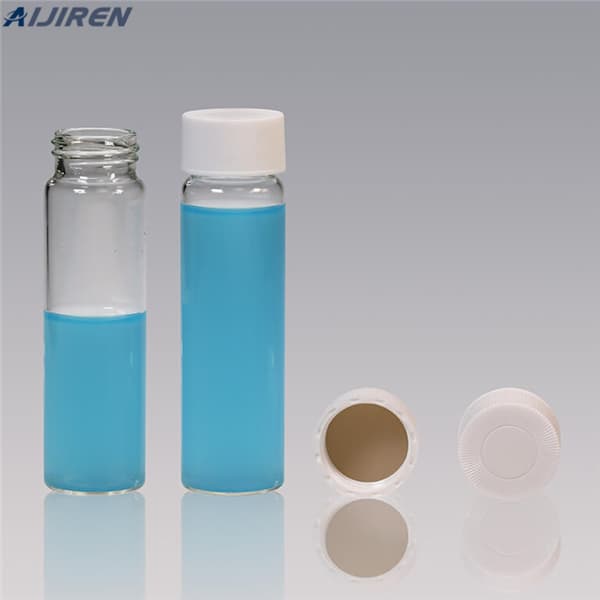
1.4 In order to accommodate analysis of a variety of sample matrices and VOCs, a matrix modifier (Sec. 7.7) is generally recommended to be used with this method. The matrix modifier is a water soluble salt solution that is added to each sample and standard vial prior to analysis.
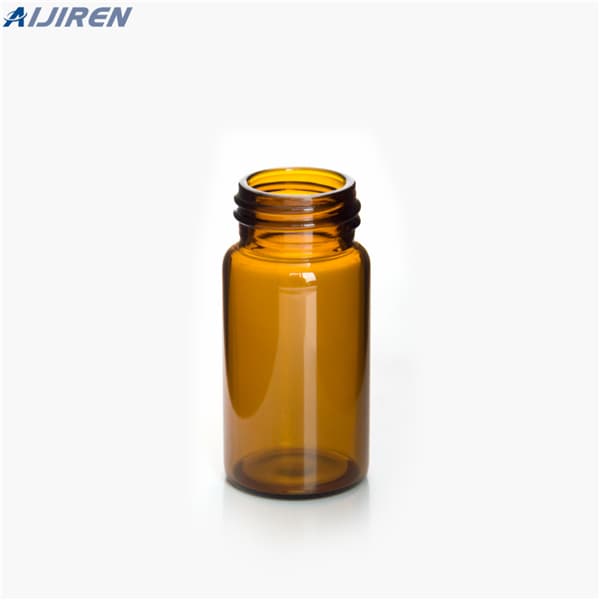
Regular 2-ml GC vials filled with 1 ml acidified urine were used as headspace sampling vials. A 100-vial autosampler tray was equipped with an additional temperature and heating time controlled "preheating station" for five vials. Profiles of organic volatiles in human urine were determined and 34 components identified.
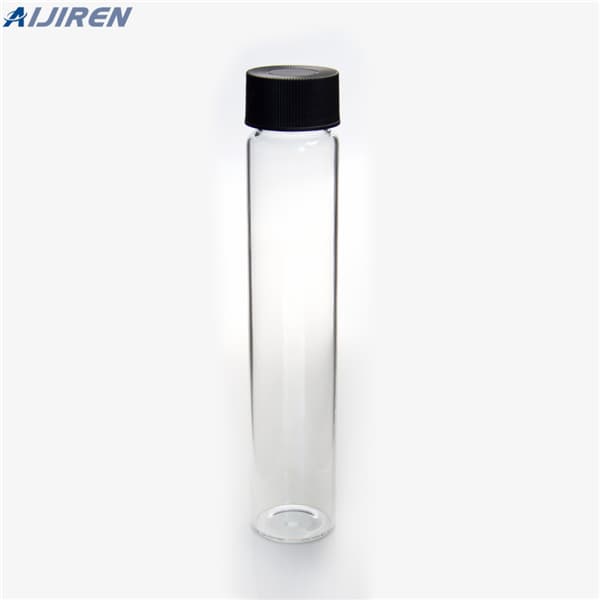
professional volatile organic analysis vials factory-Voa Vial VOA Vials - Open Top Closures and Septum Generally used for volatile organic compound analysis and sample storage, our 20mL, 40mL, and 60mL VOA vials are available in clear or amber borosilicate glass with a choice of .125" or .100" PTFE/Silicone septa.
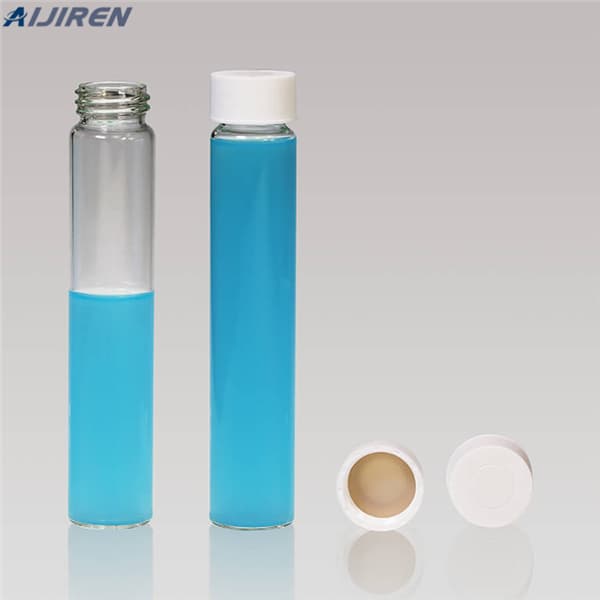
Description. Generally used for volatile organic compound analysis and sample storage, our 20mL, 40mL, and 60mL VOA vials are available in clear or amber borosilicate glass. Closures available separately. CLASS 1: (Standard) Containers are assembled without washing treatment.
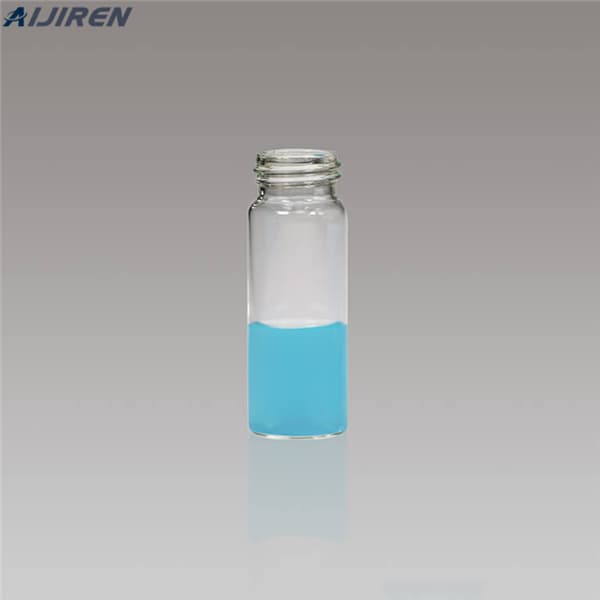
A headspace (HS) approach involving glass vials is commonly used for the quantitative analysis of volatile organic compounds (VOCs) in various environmental matrices (e.g., water and soil) [1] [2
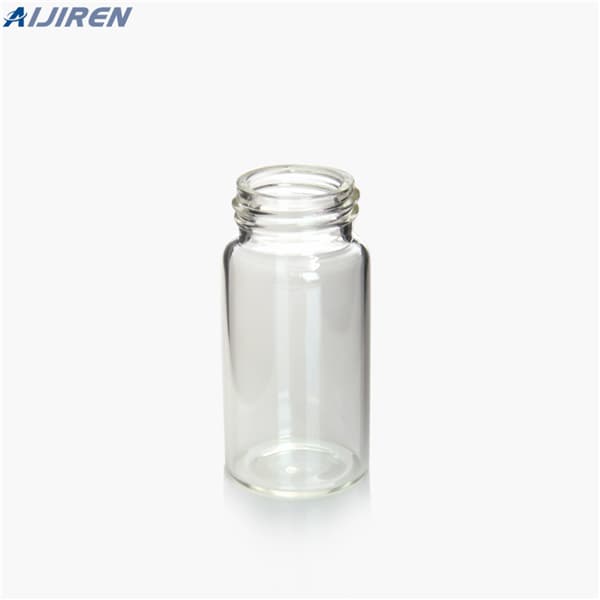
Volatile Organic Compounds (VOC) Analysis Through our global network of testing experts and analytical equipment including chromatography (HPLC, GC, GC/MS) and atomic absorption spectroscopy (AAS, GFA, FIAS), Our goal is to provide test services as efficiently as possible to maximize our customers' profits.
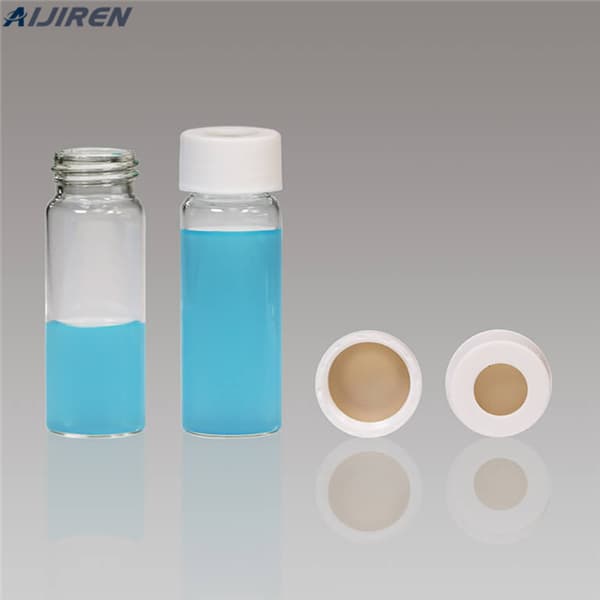
Because the roots are exposed to volatile organic compound contamination in the unsaturated zone or shallow ground water, the volatile organic compound concentrations in the tree cores are an indication of the presence of subsurface volatile organic compound contamination. Thus, tree coring can be used to detect and map subsurface volatile organic
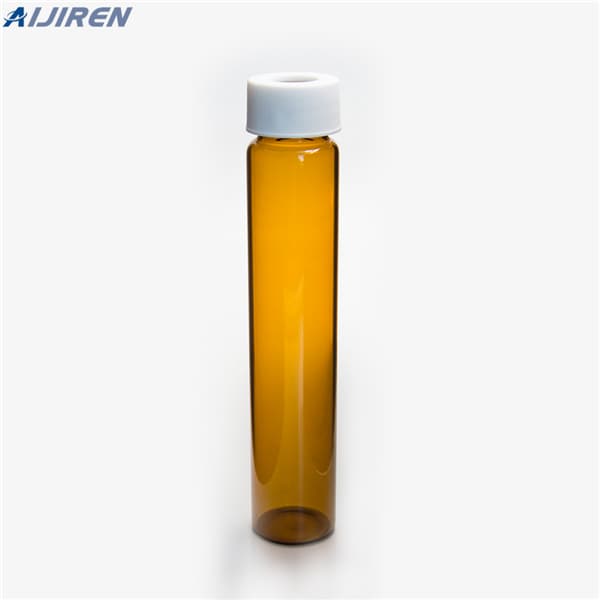
Sep 27, 2021 · VOA VIALS are most often used for volatile organic compound analysis. Available in clear 33 expansion and amber 5 expansion borosilicate glass. Open top vials come assembled with polypropylene caps with low-bleed 0.25" PTFE/silicone septa
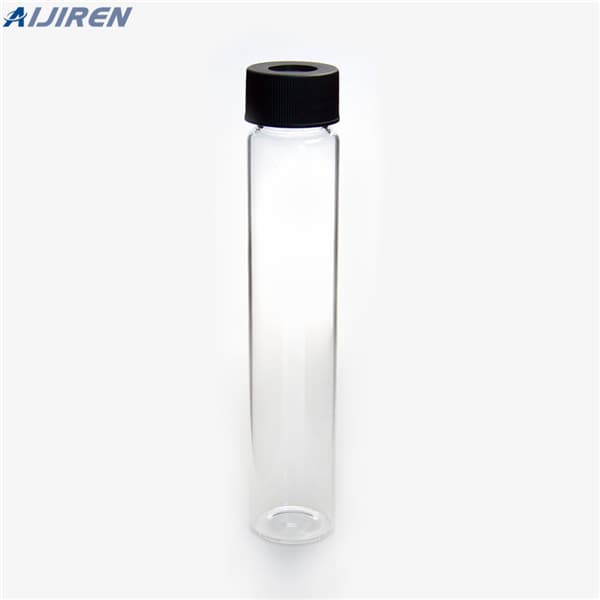
professional volatile organic analysis vials factory oem volatile organic analysis vials Thomas Scientific-Voa VOA Vials - Open Top Closures and Septum Generally used for volatile organic compound analysis and sample storage, our 20mL, 40mL, and 60mL VOA vials are available in clear or amber borosilicate glass with a choice of .125" or .100
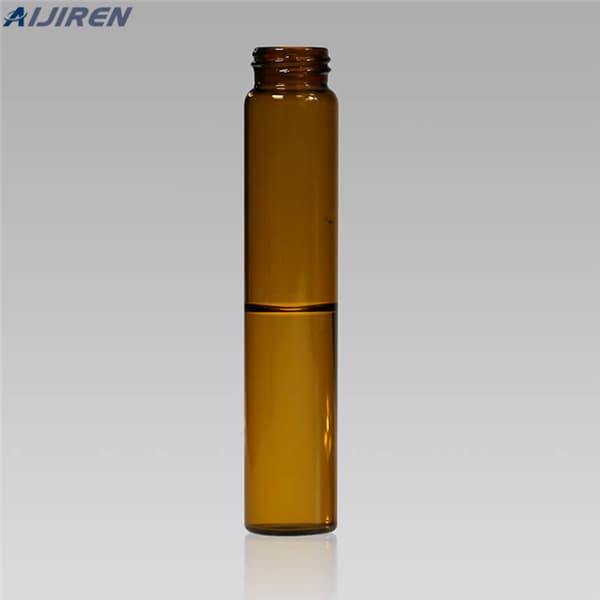
2.1 Volatile Organic Compounds (VOC) Analysis . Groundwater samples for VOC analysis must be collected in 40 ml glass vials with Teflon® septa. The vial may be either preserved with concentrated hydrochloric acid or they may be unpreserved. Preserved samples have two-week holding time, whereasa
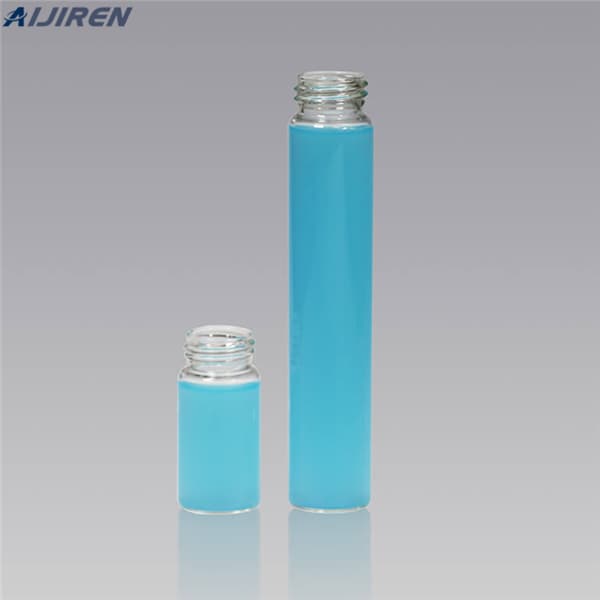
In an environmental analysis context, the VOC designation, or volatile organic contaminants , generally refers to the analysis of compounds in environmental samples with the following chemical properties:+. Low boiling points (below 200°C) Low vapor pressures. Low-to-medium water solubility. Organic compounds.

